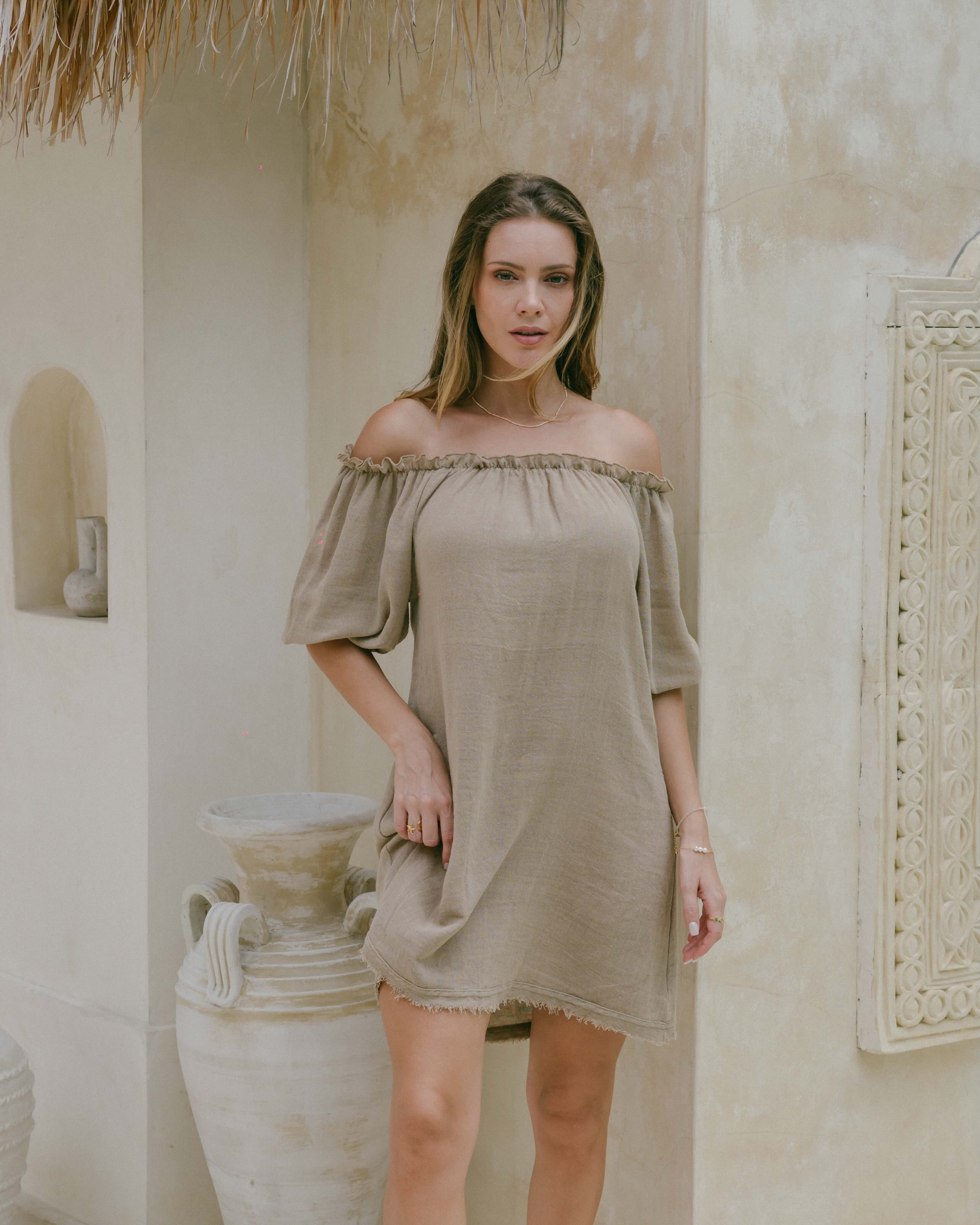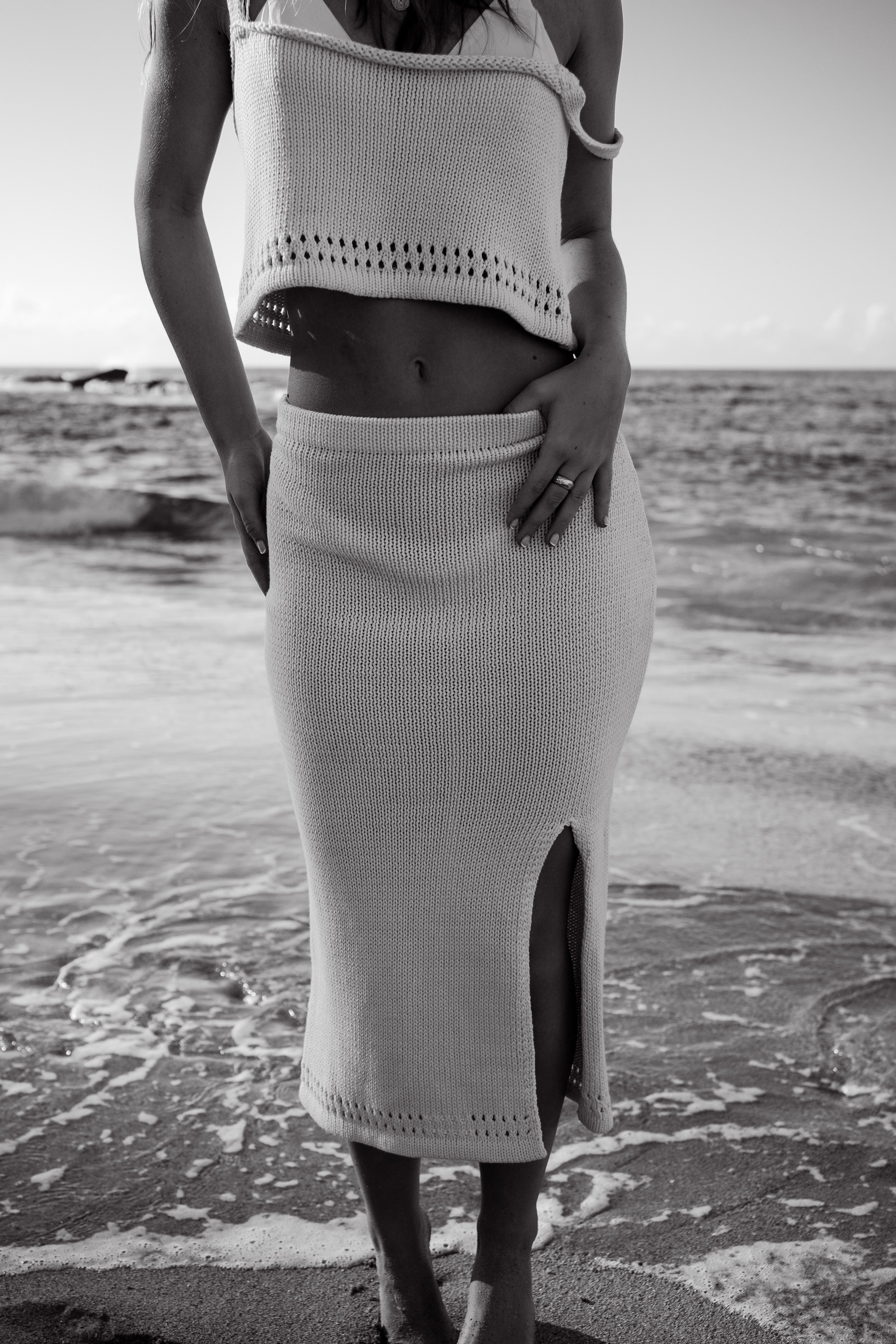Earth Day 2024: Planet vs Plastic
Earth Day 2024: Planet vs Plastic
We are eating it, consuming it, wearing it and breathing it. There’s no lie that plastic is toxic… It is toxic for the planet, animals & people. From the impact of climate change, to the impacts on our personal health; this once-thought amazing product is now causing more harm than good.
To put it more specifically, the Fast Fashion industry produces over 100 billion garments annually and is one of the largest polluters/ causes for mass production of plastics. Nearly 70% of this clothing is made from crude oil (a fossil fuel that is thick and tar-like found below ground), which results in the release of dangerous microfibres.
Approximately 85% of garments then end up in landfills or incinerators (factories where they are burnt), with only 1% being recycled. This is due to overproduction and overconsumption, resulting in a lotttt of waste. It’s up to us (consumers & brands) to make these changes & path the way for a plastic free and sustainable future!
The Impact of plastics on Humans
Remember that plastic bottle that was re-used and used until it was practically falling apart? Or that takeaway container you re-heated some leftovers in? Or those synthetic clothes you have in your wardrobe that you wear and rewash daily? - Yep, all microplastics.
All plastics break down into microplastics, which release toxic chemicals into our food and water sources, they break down further and release particles into the air we breathe. Once plastic reaches the environment, it circulates in the food chain through agriculture and the water supply. These microplastics can lead to an array of health impacts including; inflammation, genotoxicity, oxidative stress, Apoptosis and necrosis; which can lead to more severe health outcomes such as cancer, cardiovascular diseases, inflammatory bowel disease, and much more.
The Impact of plastics on the Environment
‘Plastic pollution has now grown to more than 380 million tons per year’, as quoted by Earth Day. Org. From production to product, to sitting in waste unable to decompose, there is no stage of the plastic life cycle that isn’t harmful to the planet. Plastics release chemicals in the production processes, is a waste that is hard to get rid of and is continually expanding; resulting in starving birds, suffocating sea life and deforestation. For instance, the production of a plastic water bottle requires six times the amount of water the bottle itself contains… It’s time to come up with new sustainable solutions.

So what can we do to help?
Earth day. Org has set the goal of building a plastic-free future for generations to come. They aim to achieve a 60% reduction in the production of plastics by 2024.
These Goals are to:
- Promote widespread public awareness: To educate yourself more on the harm of Plastics you can find more info here.
- Rapidly Phasing Out single use plastics by 2030: As a consumer it’s time to demand change and start thinking more responsibly about the products we purchase and use.
- Demanding policies to end the scourge of Fast Fashion & the vast amount of plastics it produces: Overproduction and overconsumption are two big reasons fashion is so polluting. It’s time for fast fashion to take responsibility for their mass production processes and the harm it causes. As a consumer, we need to educate ourselves and start shopping more consciously; thinking about what we buy, where it comes from and how we can make better choices so that it lasts longer in our wardrobe; such as supporting high quality slow fashion, shopping second hand and repairing clothing before tossing it.
- Investing in innovative technologies & materials to build a plastic-free future: To stop the production of new plastic wastes and pave the way for a sustainable future, we must find solutions in production, packaging and products.
What are we doing at Malia The Label?
At Malia the Label sustainability is at our core from production to product. We have a mission to do better for the planet, people and communities in every way we can. This means constantly re-evaluating our supply chain at all stages, remaining transparent with consumers and always improving by 1%.
Let’s have a look at our current processes:
Design
At the design stage we create a moodboard that is inline with our core value; timelessness, versatility & sustainability. We think about what is going to help consumers to create a wardrobe of sustainable pieces that will last a long time; Which to us a wardrobe that is loved is one that is sustainable, has a good mix of staple and statement pieces that are versatile, and clothing that isn’t trend driven; but instead focuses on timeless details and styles.
From this sketches are made; the best designs are then chosen to be CAD drawn up on the computer, and tech pack is created with all the making details; such as the make, size, fabric, materials, colour/ print and tagging.
Sampling
Our Tech Packs are then passed on to our Small Factory Makers in Bali and we work closely with them to create a sample. This sample then gets fitted to a model, if it’s not right, we then make the correct adjustments. This usually takes 1-2 samples to get right for us; however can take a lot longer if measurements aren’t correct, if there is lack of communication, etc.
Production
This is the stage where it can get tricky for lot’s of fashion brands… When you choose a factory, it’s more often than not that the factory cannot handle all the work that has been given to them; production then gets outsourced underneath these companies and brands lose traceability of where their products are made.
At Malia The Label, all of our production takes place in Bali in small factories that we deal directly with so it’s very easy to keep track of. We started out the sampling and production phases with our Factories whilst in Bali so we could be a part of the processes and ensure that our products were going to be made in a sustainable and ethical way. Our workers work a 5-6 day week and are paid fairly, with regular day breaks and ceremonial period breaks over the calendar year. All of our products are made in very small batch quantities, so there isn’t too much strain on worker’s and we won’t run the risk of overproduction. All of our products aren’t put into the classic plastic garment bags; but instead our makers package our pieces for sending without the plastic as is or in a large natural brown wrap coverage.
Although our process is slower than a lot of big brands; we can ensure that our pieces are made to a high quality because the care and time has been put into them, we can ensure that they have been made ethically and we can ensure they are sustainable.
Packaging
When an order is placed online, we love to package it up with love and care. We use brown kraft honey-comb paper, tissue paper or sometimes a Malia cotton drawstring bag to wrap it all up and then pop it into a decomposable mailer bag (They can also be reused once before composting). If you have ordered from us before - you may notice that we don’t print a packing slip; This is to save the paper waste!
To Celebrate Earth Day we will be donating $1 from every purchase between the 22/4/24- 6/5/24 to Earth Day.Org.
Resources
Earth Day. Org, https://www.earthday.org/planet-vs-plastics/






Leave a comment
This site is protected by hCaptcha and the hCaptcha Privacy Policy and Terms of Service apply.